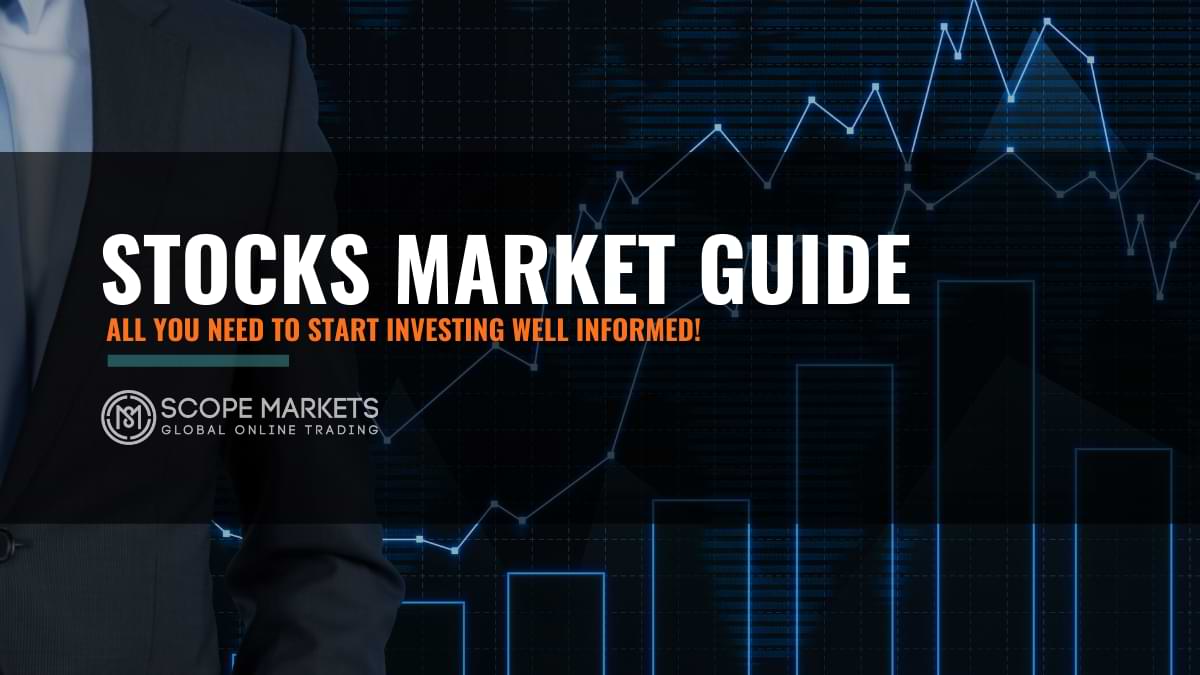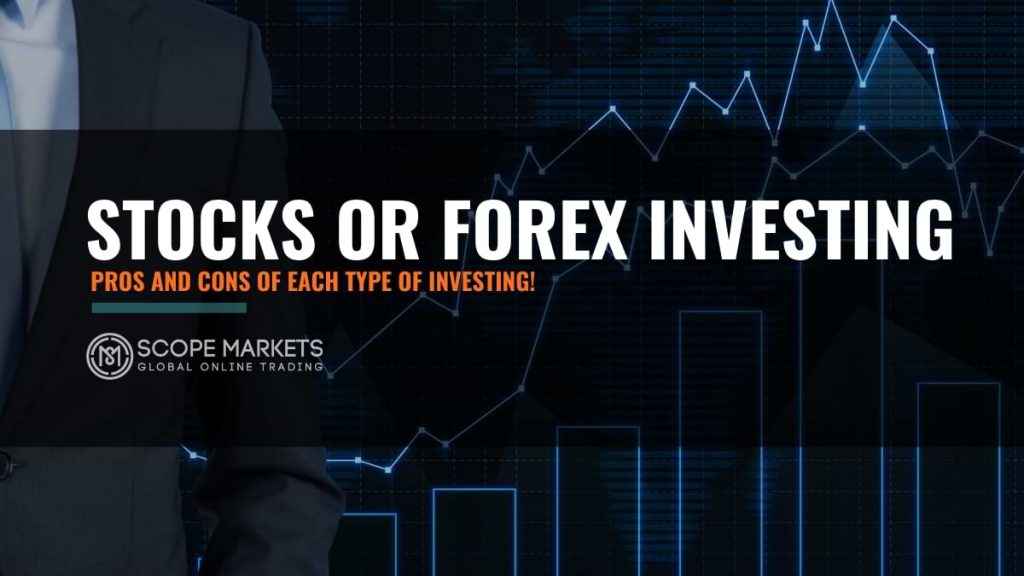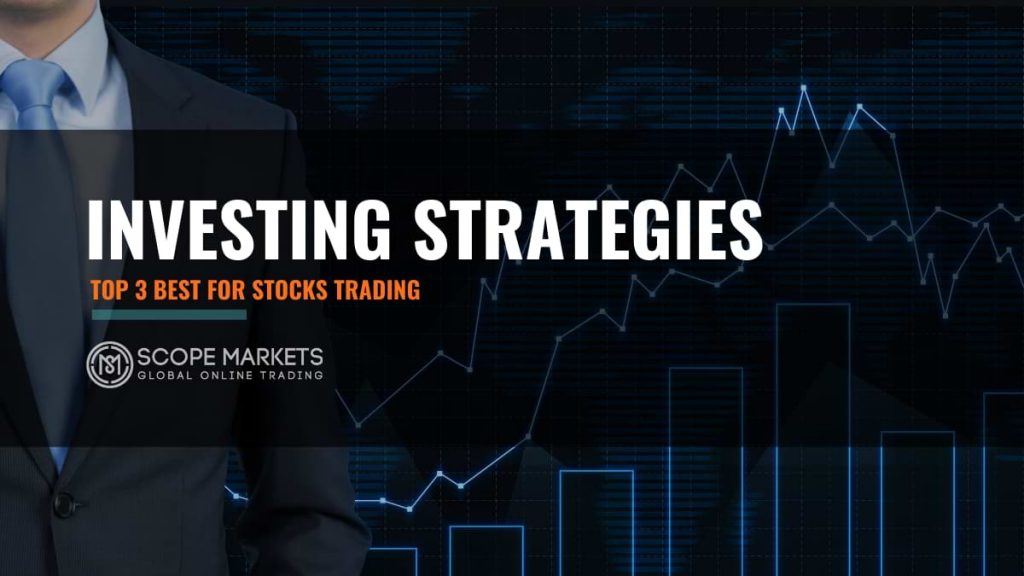Best Stock Market Guide For 2020

Table of Content
If you have never invested in the stock market earlier, then it can be a daunting process. Stocks are not the same as savings accounts, money market funds, or CFDs. In which their principal sum can both increase and decrease. If you do not have enough knowledge of stock investing, you can lose most of your investment funds. That is why you need a Stock Market Guide to understand the fundamentals of why investing in stocks is so significant.
In the stock market, for each buyer, there is a trader or seller. When you buy one hundred shares of stock, somebody is selling one hundred shares to you. Furthermore, when you go to trade or sell your stocks, somebody needs to buy them. If there are more buyers than sellers, then the price of the stock will increase. Again, if there are some added sellers in comparison to buyers, then the price will drop.
If you are looking to buy stocks, then you will need online stockbrokers to start investing. We tell you using one of the best amongst them to buy or sell your stocks. Also, you will need to find a lot of things if you wish to start your stock-market journey. If you aspire to enter stock investing but don’t think like an expert trader. Then, you must read on this stock market guide.
1. Have Long-Term Stock Market Goals
Why do you consider stock-market investing?
Would you need your cash return in 6 months, a year, 5 years, or more?
Are you saving for retirement, prospective college fees, buying a home, or making an estate to move to your receivers or beneficiaries?
Before making any investment, you should follow this Stock Market Guide to understand your action plan. Also, the expected time in the future that you may need the stocks.
If you need your investment back within some years, then think of another investment. With its volatility, the stock market gives no assurance that your capital would be there when you want it.
Knowing the capital amount you need and the future moment you want it, you can assess how much you should invest. Also, what type of ROI you will need to get the desired outcome. To know how much sum you need for retirement or later college fees, use the best calculator online.
Stock Market Guide takeaways: Keep in mind that the growth of your portfolio depends on 3 factors:
1. The money you invest
2. The sum of net yearly income on your assets
3. Time-period of your investment
So, you should keep saving as soon as probable, and get the highest ROI possible.
2. Find Out Your Risk Threshold
The risk threshold is a subjective trait that depends on genetics. But definitely affected by education, earnings, and revenue. Because these factors rise, the risk threshold also grows. It gets adversely affected by age (because one gets older, the risk threshold reduces). Your risk threshold is how you think about risk and the extent of stress you get when risk is there.
And the risk threshold is the degree to which an individual selects to risk feeling a less desirable outcome. That is in the chase of a more positive outcome. In different words, would you take a chance on 100 dollars to win 1,000 dollars? Or 1,000 dollars to win another 1000 dollars? All individuals differ in their risk threshold, and there is no proper balance.
Stock Market Guide – Risk Threshold or Tolerance
Risk tolerance is also changed by one’s understanding of the risk. Let’s suppose, flying in a plane or traveling in a car would have been seen as very unsafe in the previous 1900s. But, in the present time as plane and vehicle travel are a normal thing. Many people today would think that horse riding might be bad with the possibility of falling. As only a few individuals stay all over horses.
The concept of opinion is necessary, particularly in investing. As you get enough knowledge about stock investments like buying and selling, instability, and liquidating an investment. You are apt to count stock investments to have less risk than you thought before your first buying. Thus, you worry when investing is less serious, your risk threshold doesn’t change. Since your understanding of the risk has emerged.
Stock Market Guide – Risk Limit
By knowing your risk limit, you can ignore those investments which are probable to make you upset. Generally, you should not at all hold an asset that keeps you away from resting at midnight. Stress increases fear, which activates spontaneous responses in place of logical responses. During financial difficulty, the shareholder who stays cool and follows a balanced decision process always stays first.
Trade 50+ popular shares with low margin requirements.
3. Diversify or Change Your Stock Investments
Sophisticated investors generally avoid stock changes. That is in the belief that they have done all the basic research to check their risk. They are also pleased that they can check any possible risks that will imperil their position. And, will be capable of liquidating their investments before getting a huge loss.
One of the most reliable investment plans is to keep all your eggs in a single basket and observe the basket. And, don’t make the mistake of considering you are either Carnegie or Buffett. Particularly, in your initial years of stock market investing.
Stock Market Guide – Risk Control
A recommended method to control risk is to change your exposure. Cautious investors buy stocks of diverse organizations in varying industries. And, sometimes in various countries, with the hope that a single bad case would not affect their asset. Or would otherwise impact them to diverse degrees.
Suppose you have stocks in five diverse companies, each of which you expect to grow earnings. But, the conditions vary. At the year’s end, you might get 2 organizations (A & B) that have done very well so their stocks are following 25% each. The stock of 2 other organizations (C & D) in diverse industries are following 10% each. Whereas the 5th company’s (E) valuables were sold to support a huge claim.
Change allows you to gain from the loss of your whole investment (that is 20% of your holdings). And that is by earnings of 10% in the 2 best firms (25% x 40%) and 4% in the outstanding 2 firms (10% x 40%). As your complete portfolio worth reduced by 6% (20% loss – 14% profit), it is far better than investing only in firm E.
4. Consider the Stock Fundamentals First
Before initiating your prime investment, consider learning the basics of the stock market. As well as specific securities comprising the market. There is a great saying: It’s not called a stock market, but a market of stocks.
Stock Market Guide – Exchange-Traded Funds
If you are not buying exchange-traded funds (ETFs), then your focus would be on personal securities, apart from the market. There are times when each stock goes in the same way. Even when the averages drop by 100 points or more, the securities of some firms would go higher in cost.
5. Ignore Leverage
Leverage only means the use of acquired cash to operate your stock market strategy. In a margin account, brokerage firms and banks can lend you cash to buy stocks, usually 50% of the buying value. Also, if you wanted to buy one hundred shares of a stock trading at 100 dollars for a whole cost of 10,000 dollars. Then, your brokerages firm could lend you $5,000 to complete your buying.
Stock Market Guide – Cash Tools
The use of acquired cash tools or amplifies the outcome of price change. Assume the stock changes to $200 for a share and you trade it. If you had practiced your own cash only, your return on investment will be 100%, which is [($20,000 -$10,000)/$10,000].
If you had acquired $5,000 to get the stock and exchanged at $200 for each share, your return will be 300 %. That is [(20,000-$5,000)/$5,000] after returning the $5,000 loan and eliminating the price of interest given to the broker.
It feels good when the stock or share price goes up but think of the different side. For example, the stock dropped to $50 for each share in place of increasing to $200. Then, your loss will be 100% of your original investment, besides the price of interest to the broker.
Leverage is a device, not good, not bad. But, it is a device best used later you get knowledge and trust in your decision-making skills. Restrict your risk when you are beginning to make sure you can gain profit in the long-term.
References:
Stock trader – Learn stock trading.
Investor junkie – How to get into stocks.
Money crashers – Stock market investing tips guide checklist.
Stock Market Guide – Final Words
Investments in equity have had a return no doubt above different investments. Whereas also proving liquidity, total clarity, and effective rule to assure a level playing area for all.
Investing in the stock market like Mutual funds, equities, ETF is the best chance to make large asset worth for traders who are eager to be constant savers, make the significant investment in time to gain knowledge, administer their risk, and are stable, letting the magic of combining to operate for them.
After reading this Stock Market Guide, you now understand that the younger you start your investing diversion, the bigger the final outcomes. You only need to remember to step before you start running.
So, do you have some more tips that you can suggest for effective stock market funding?
Disclaimer: This material is a marketing communication and shall not in any case be construed as an investment advice, investment recommendation or presentation of an investment strategy. The marketing communication is prepared without taking into consideration the individual investors personal circumstances, investment experience or current financial situation. Any information contained therein in regardsto past performance or future forecasts does not constitute a reliable indicator of future performance, as circumstances may change over time. Scope Markets shall not accept any responsibility for any losses of investors due to the use and the content of the abovementioned information. Please note that forex trading and trading in other leveraged products involves a significant level of risk and is not suitable for all investors.










